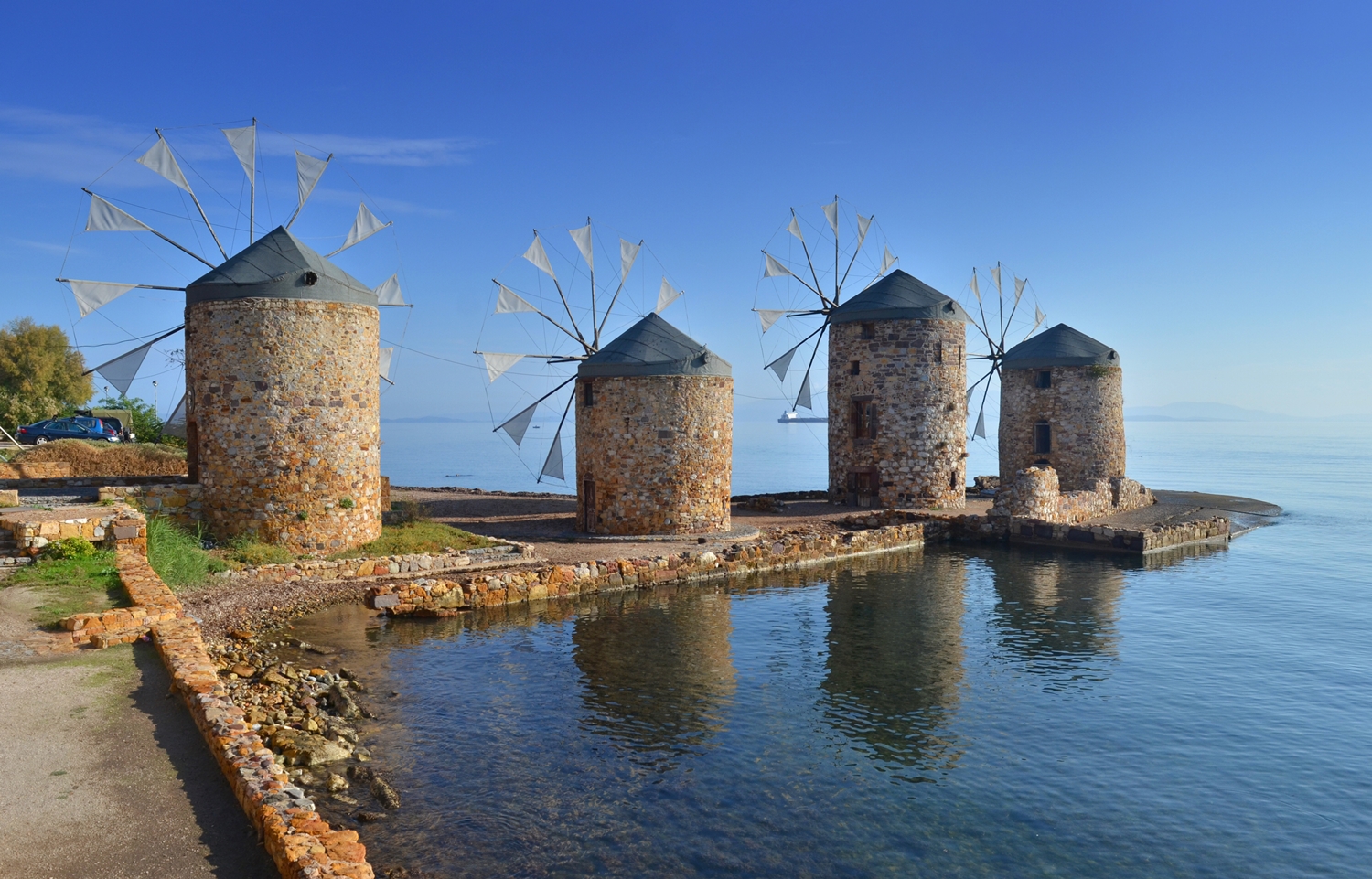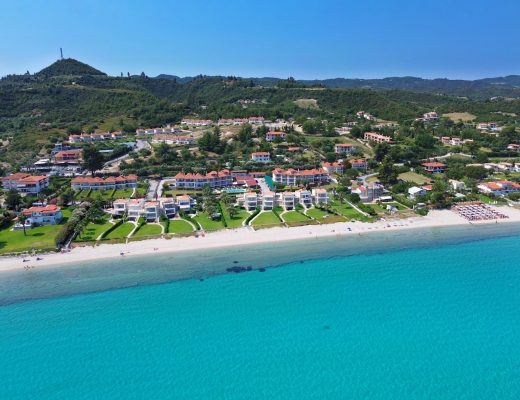There are islands that greet you with noise, music and crowds, and others, quiet and simple, that win you over slowly. Chios belongs to the latter kind. At first glance it seems modest and unassuming, but once you allow it to draw near, it reveals layers of history, mythology and unforgettable scents.
Located in the northern Aegean, just off the Turkish coast, Chios is an island of rich history and remarkable beauty. Through the centuries it has been home and refuge to many civilizations: Greeks, Romans, Byzantines, Genoese and Ottomans. Each has left its mark, making the island today a mosaic of cultures, with Western arches and squares, Eastern gates, Byzantine churches and Turkish hammams.
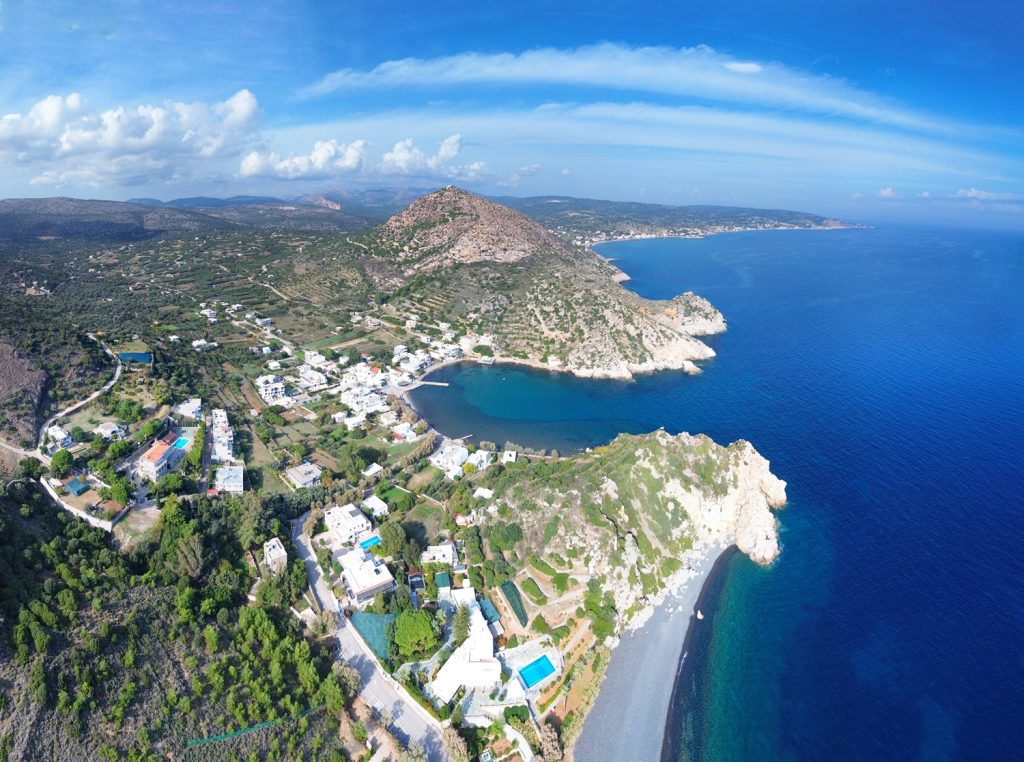
Chios is a place where history is not just a story from a book but part of everyday life. As you walk through the stone streets of old villages, you feel time moving more slowly, as if the island itself is teaching you patience and calm.
According to legend, Chios was named after Chione, the daughter of Dionysus, the god of wine. Her name means “Snowy”, and although snowflakes rarely fall on the island’s southern parts, the northern mountain peaks sometimes do glisten under a blanket of snow. These mountains are not only a symbol of the island but also a natural barrier protecting the southern slopes from wind and cold, creating a microclimate perfect for the growth of the unique plant that made Chios famous around the world, mastiha.
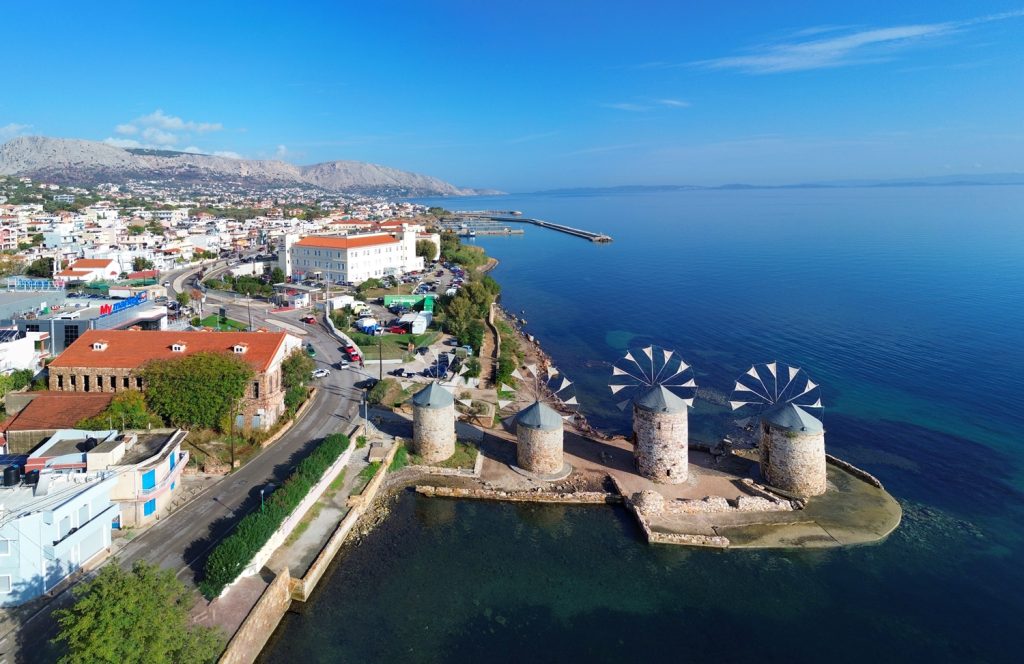
Mastiha is a resin obtained from a special type of tree and has been used for centuries in medicine, cosmetics, perfumes, sweets and liqueurs. Only on Chios can mastiha of such quality be found, which is why it is called the island’s liquid gold. In the south lie the Mastichochoria, twenty-four fortified medieval villages that were once walled and guarded, as pirates and traders often tried to seize the precious resin.
In the villages of Pyrgi, Mesta and Olympi time has stopped. Pyrgi is a true architectural gem: the facades of its houses are covered with black and white geometric patterns, unique in all of Greece. In Mesta, narrow winding streets and interconnected stone houses were designed to help defend the village from invaders. Walking through those alleys feels like stepping into a living museum.
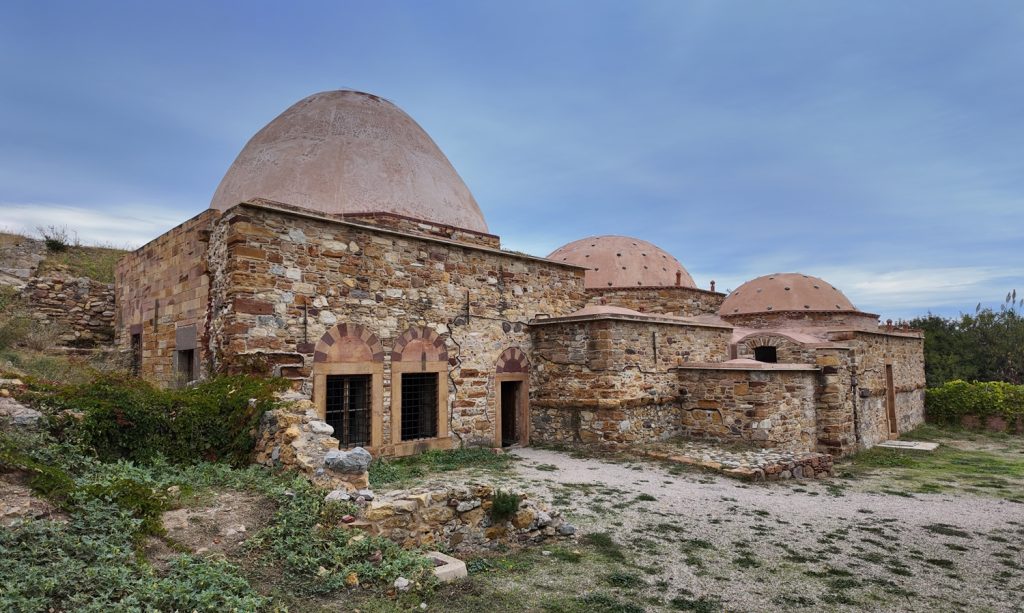
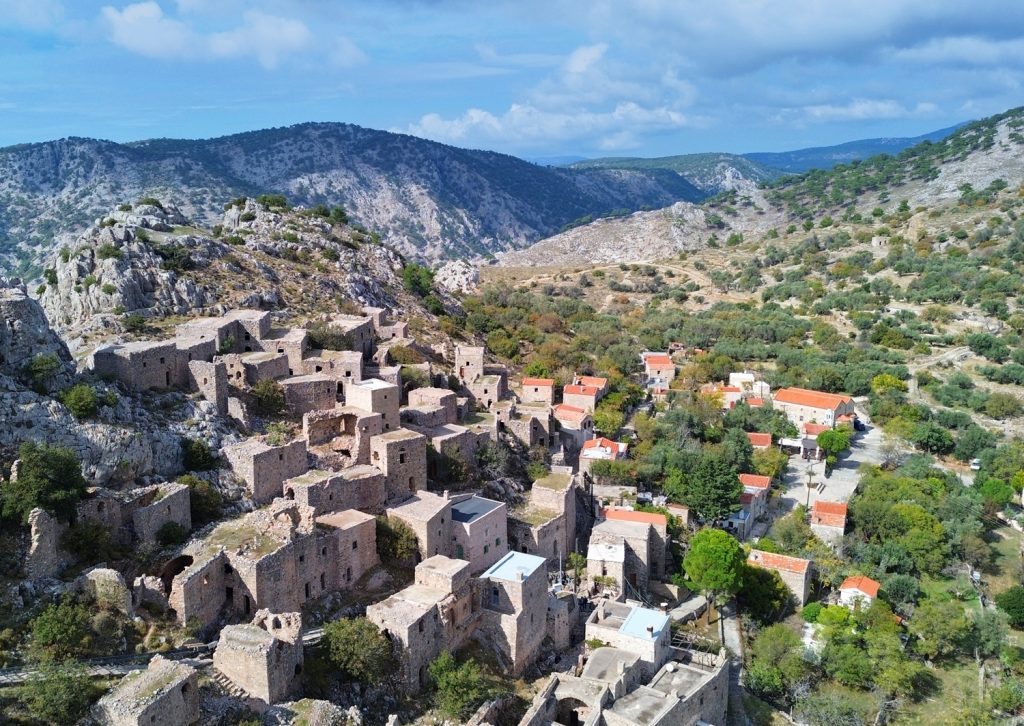
Yet Chios is not only about mastiha. Its fertile soil also produces fragrant mandarins, for which the valley of Kambos is famous throughout Greece. In November and December the whole region smells of citrus, and local products such as juices, jams and sweets made from mandarins are essential souvenirs for every traveler. Besides mandarins, the island is known for its rose cultivation. From rose petals, locals make perfumes, essential oils and the traditional rose spoon sweet, served with a glass of cold water as a sign of welcome.
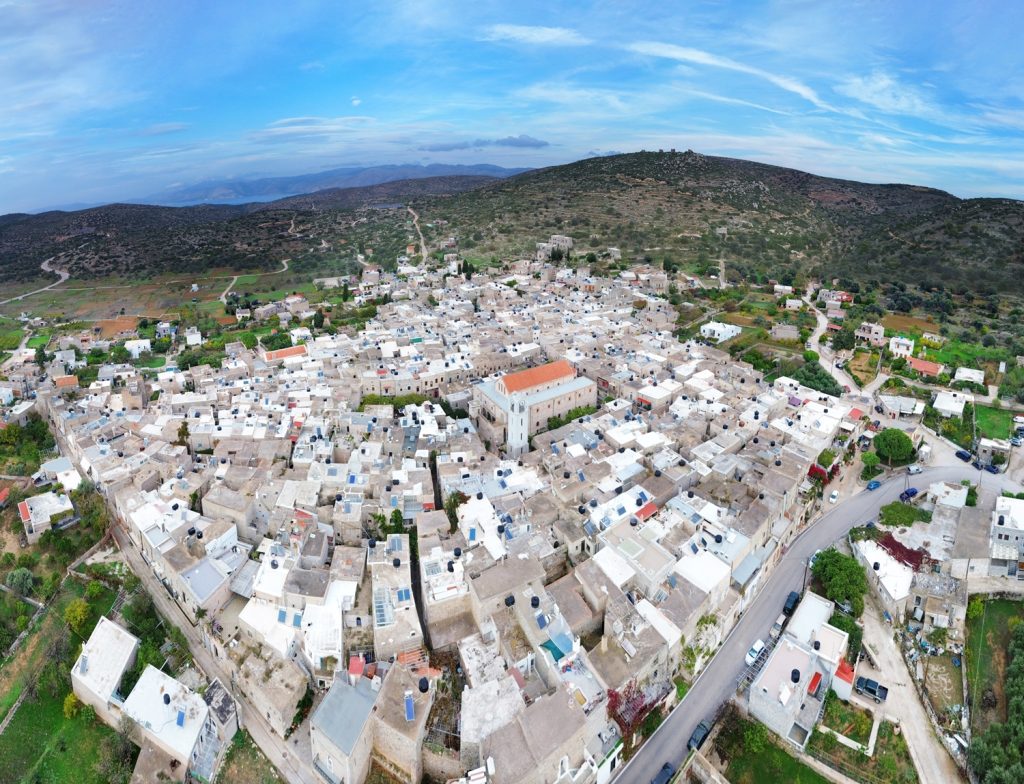
The traces of the Genoese and Ottomans are most visible in the island’s architecture but also in its culture. The Genoese turned Chios into an important trading and maritime hub, while the Ottomans, who ruled for centuries, left their mark in the details of daily life. The blend of these two worlds, East and West, created a peculiar, almost melancholic beauty.
At the heart of the island lies Anavatos, an abandoned stone village perched high on a cliff above the sea. It is called “the ghost town” because its ruins still echo with stories of resistance and tragedy from the time of Ottoman invasions. From the top of Anavatos, the view is breathtaking: sea, mountains and a horizon that fades into the endless blue.
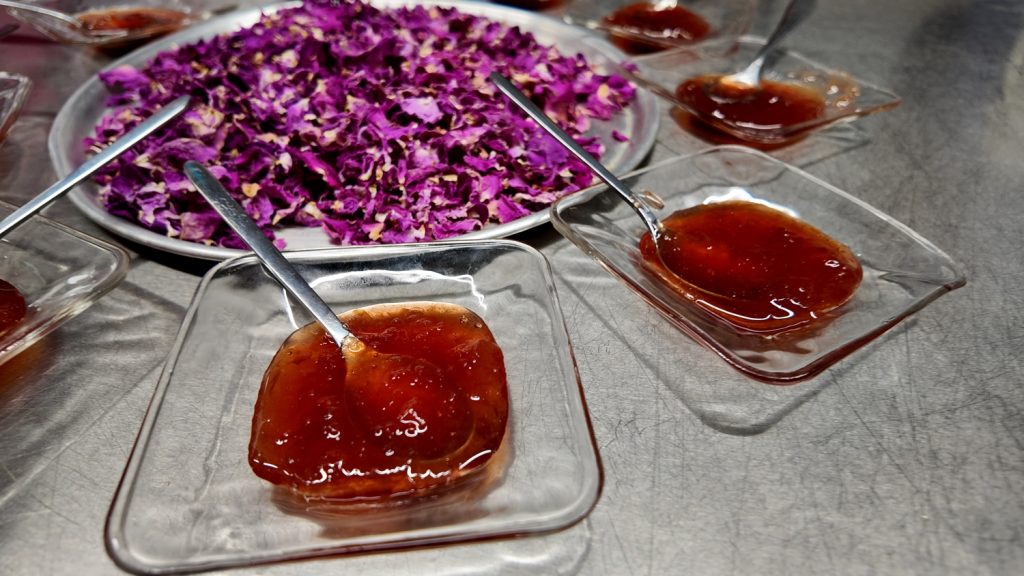
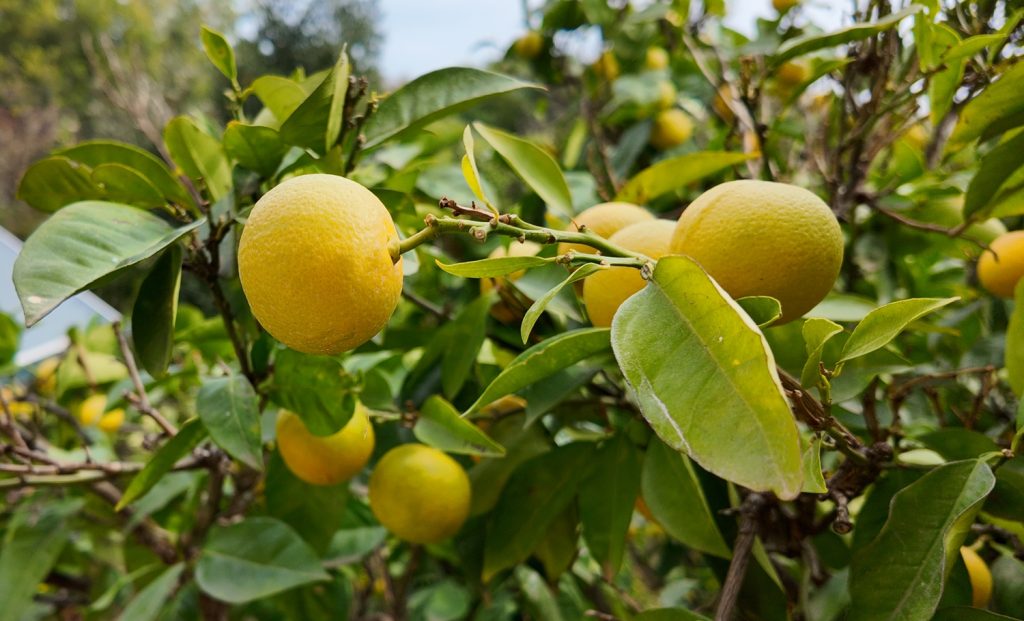
Chios is also an island of spirituality. It is home to dozens of monasteries, the most famous of which is Nea Moni, a UNESCO World Heritage Site. Built in the 11th century, it houses some of the finest Byzantine mosaics in Greece. In the golden glow of saints on a dark background, in the scent of incense and the stillness of the monastery courtyard, one feels the weight of centuries and the depth of faith. Other important monastic sites include Agia Markella, the island’s patron saint, as well as Agios Minas and Agios Konstantinos, all vital spiritual centers and places of pilgrimage.
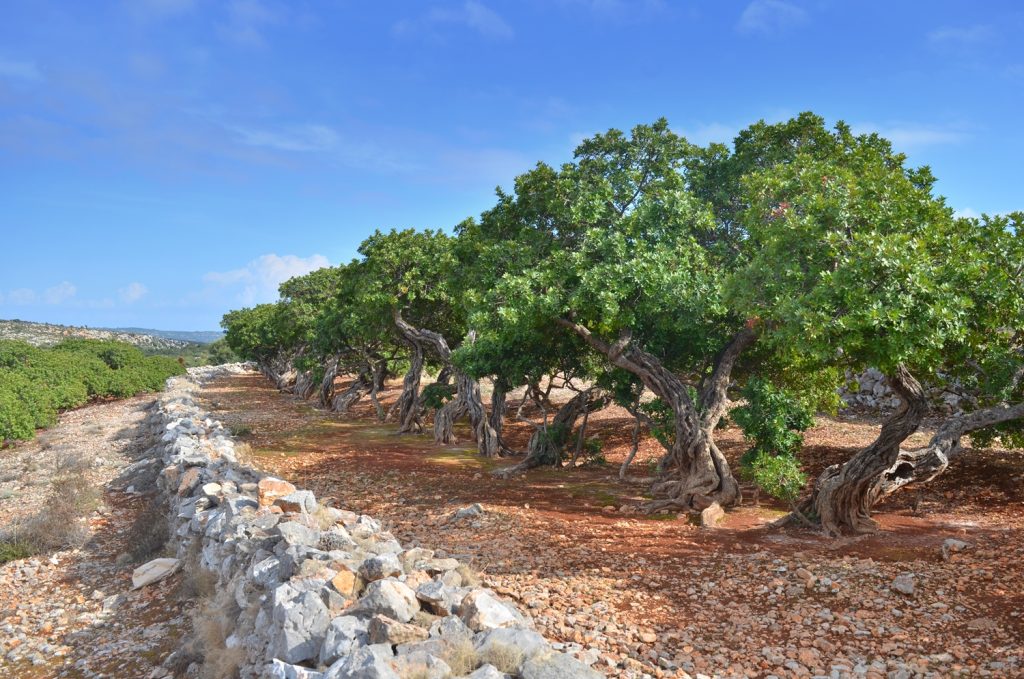
Chios was also home and inspiration to great figures. Before setting out on his great voyage, Christopher Columbus lived on Chios for several years. He gathered sailors and shipbuilders here, for in the Middle Ages the island was known for its skilled seafarers. Legend has it he left part of his heart behind, having fathered children with local women, and even today there are families on Chios bearing the surname Kolumbos.
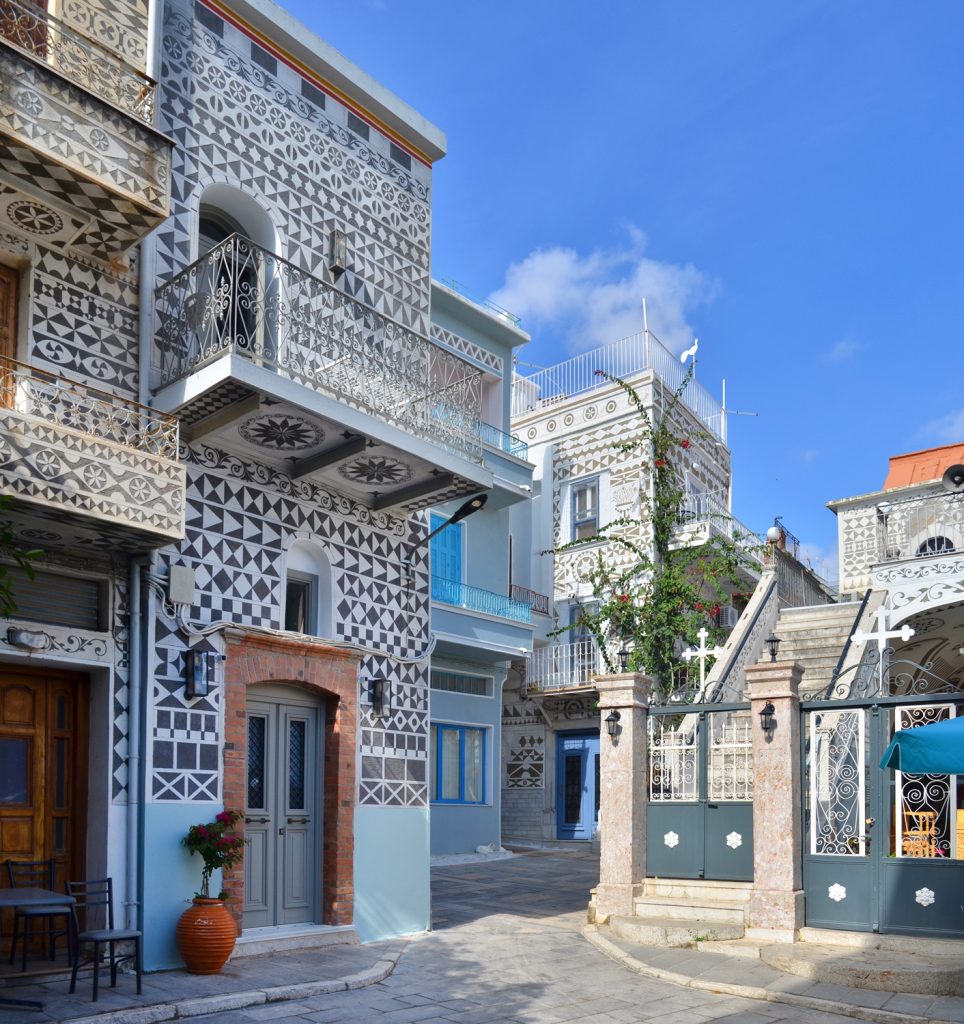
The island is also the birthplace of one of Greece’s most renowned artists, Mikis Theodorakis, composer, poet, fighter and the man whose music became the very sound of the Greek soul. His melody from Zorba the Greek still echoes along the Aegean shores, carrying the same energy, pride and passion you feel while walking this island.
The sea around Chios shifts from turquoise to deep blue, and its beaches are among the most beautiful in the Aegean. In the south lies Mavra Volia, a beach with black volcanic pebbles that shine in the sun like glass. The water is crystal-clear, and the contrast between the dark sand and the sunlight creates a surreal sight. To the north lie the beaches of Nagos, Vroulidia and Giosonas, hidden, tranquil, perfect for those seeking solitude. In many places you can swim alone, surrounded only by the sound of waves and wind.
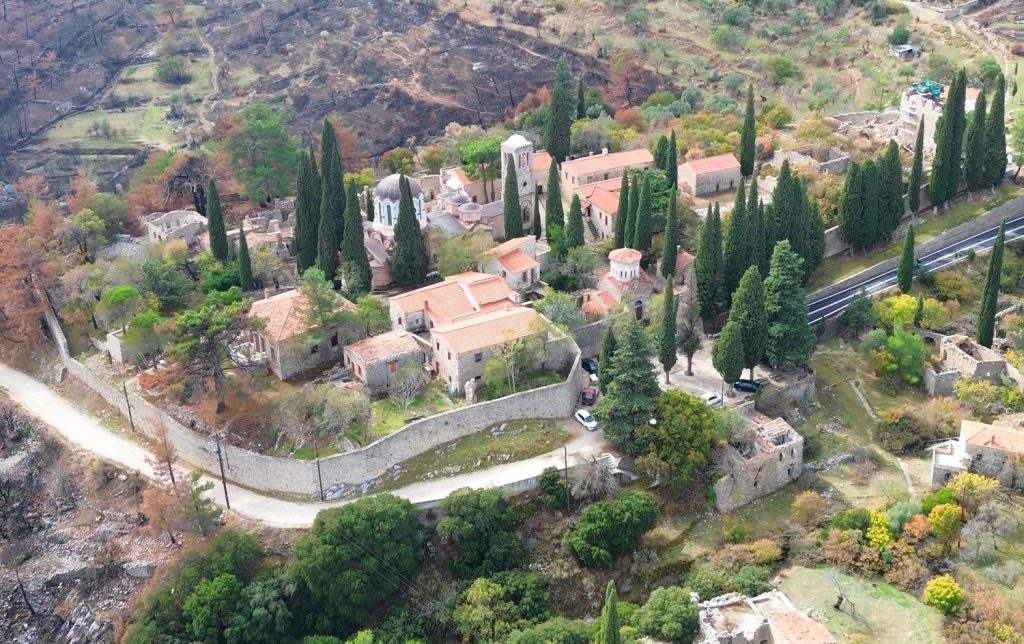
Chios cuisine is a true Mediterranean story. In seaside tavernas, you can enjoy fresh fish, grilled octopus, mastelo cheese, olive oil and local wine. Desserts are infused with mastiha and mandarin, cakes with the scent of rose. Prices are reasonable and the hosts are welcoming. Meals here are savored slowly, with a smile, just as life itself is lived.
You can reach Chios by plane via Athens or by ferry from the port of Piraeus. The island lies directly across from the Turkish coast, opposite Izmir and the resort town of Çeşme, so many visitors take a day trip to Turkey during their stay. In November, temperatures remain pleasant, between 22 and 24 degrees Celsius, and the sea still warm, above 20 degrees, so swimming is possible even when the rest of Europe is already wrapped in coats.
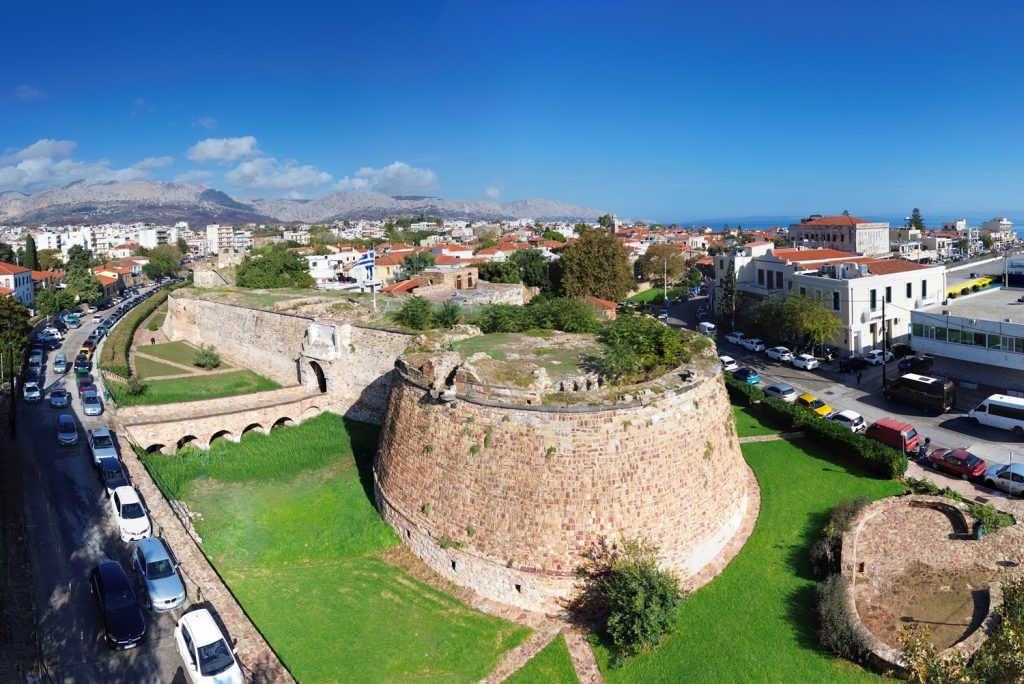
Chios is an island that does not enchant you instantly but slowly and forever. It is not just a place but a feeling, the scent of mastiha and the sea, and the sound of silence that stays with you long after you have returned home.
This press trip was organized by GNTO Serbia office, municipality of Chios and the Chamber of Commerce of Chios in order to promote tourism potential of island of Chios to Serbian market.


